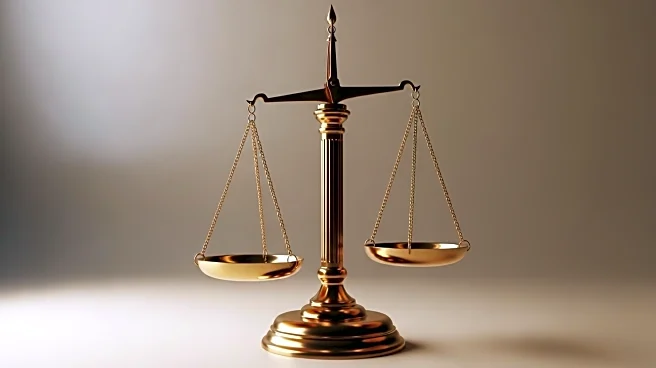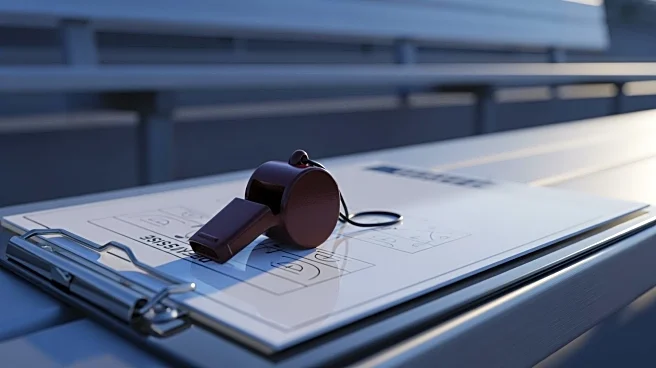What is the story about?
What's Happening?
Over 550 celebrities, led by actor and activist Jane Fonda, have relaunched the Committee for the First Amendment, a group originally formed during the post-World War II Red Scare. The committee aims to defend constitutional rights, particularly free speech, in response to what they describe as a coordinated government effort to silence critics across various sectors, including government, media, judiciary, academia, and entertainment. The original committee was established in the 1940s to oppose the House Un-American Activities Committee, which targeted entertainers accused of communist sympathies. The new initiative includes prominent figures such as filmmakers Spike Lee and J.J. Abrams, musicians Barbra Streisand and John Legend, and actors Mark Ruffalo and Anne Hathaway. In a letter, the group emphasizes the non-partisan nature of defending free speech and calls for solidarity against repression.
Why It's Important?
The revival of the Committee for the First Amendment highlights ongoing concerns about free speech and government overreach in the United States. This movement, spearheaded by influential cultural figures, underscores the perceived threat to civil liberties and the importance of protecting constitutional rights. The involvement of high-profile celebrities brings significant attention to the issue, potentially influencing public opinion and policy discussions. The committee's actions may also inspire similar movements across other sectors, emphasizing the need for vigilance in safeguarding democratic principles. The initiative reflects broader societal debates about the balance between national security and individual freedoms, a topic that remains highly relevant in contemporary political discourse.
What's Next?
The committee's reformation could lead to increased advocacy and public campaigns aimed at raising awareness about free speech issues. It may also prompt responses from government officials and policymakers, potentially leading to legislative or judicial actions to address the concerns raised. The involvement of celebrities could attract media coverage and public engagement, further amplifying the committee's message. As the group gains momentum, it may collaborate with other civil rights organizations to strengthen its impact and reach. The committee's activities could also influence upcoming elections, as candidates and parties may need to address these concerns to appeal to voters who prioritize civil liberties.
Beyond the Headlines
The revival of this committee may have deeper implications for the cultural and political landscape in the U.S. It highlights the role of celebrities as influential voices in political and social issues, potentially shifting the dynamics of advocacy and activism. The movement also raises questions about the effectiveness of celebrity-led initiatives in enacting real change and the potential for such efforts to bridge partisan divides. Additionally, the committee's focus on historical parallels with the McCarthy Era invites reflection on past and present challenges to free speech, encouraging a broader dialogue on the evolution of civil rights in America.















